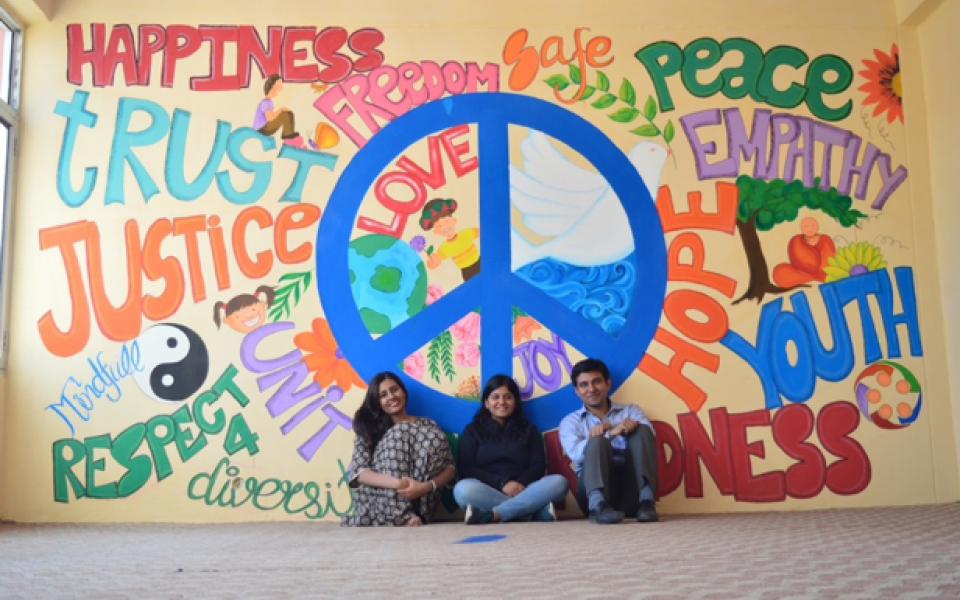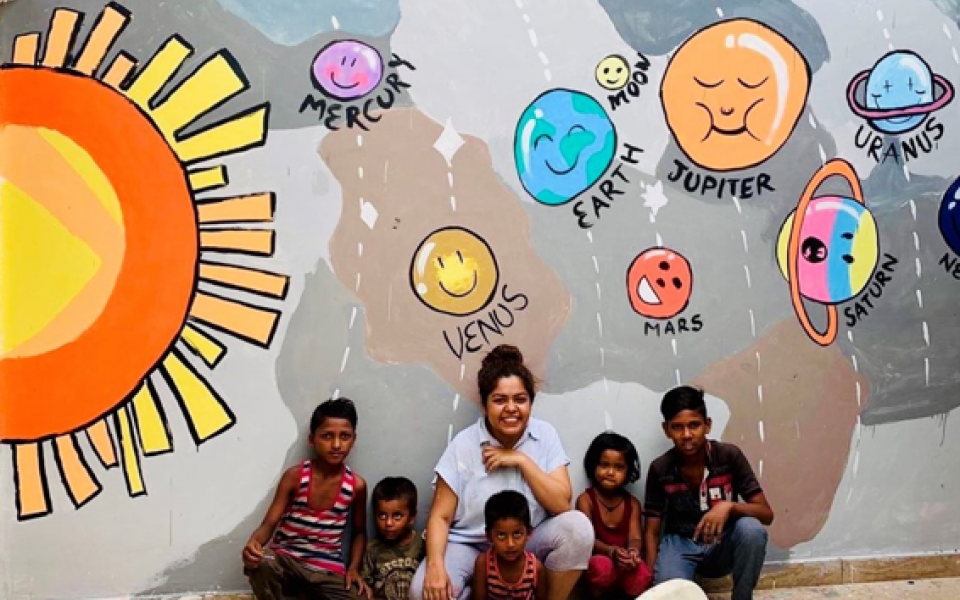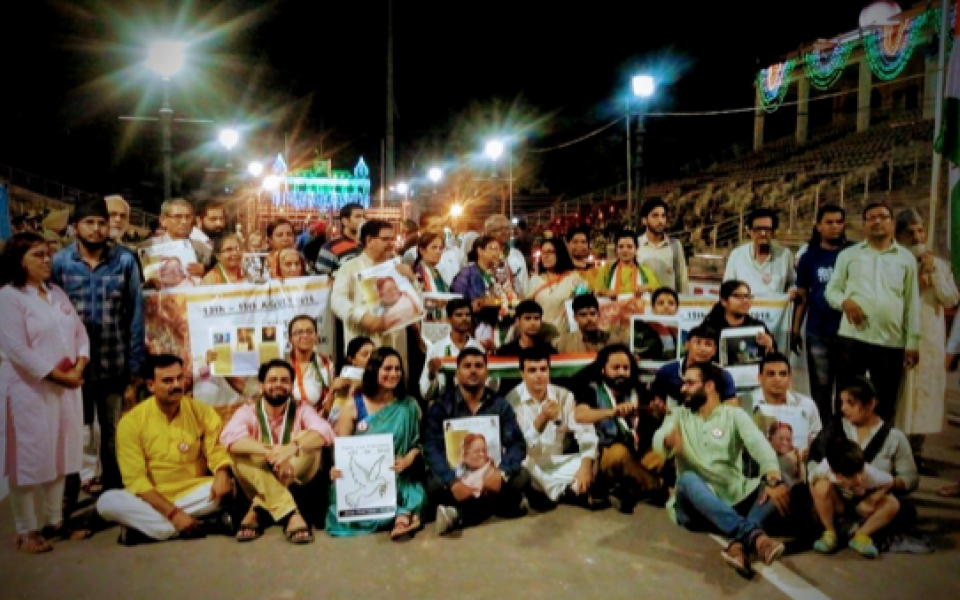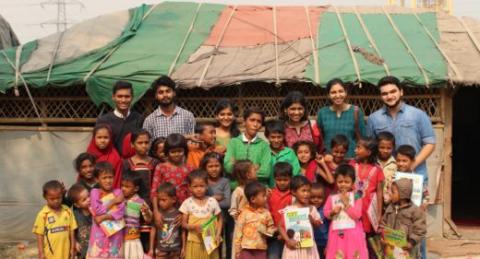
Written by Atharva Mehendale, Community Project Manager, URI - North India & Afghanistan
The idea of Youth for Peace International (YfPI), a member group of United Religions Initiative – North India & Afghanistan came out when UNSCR 2250 was launched on 15th Dec 2015 which recognises the important and positive contribution in the maintenance and promotion of International Peace & Security; and also from the need of bridging the gap between people who work at the grassroots level and the policy makers in the conflict resolution and peace building domain. The organization envisions a peaceful world of empowered individuals and sustainable societies. The team of young peacebuilders are on a mission to develop the capacities of young people through Peace Education and Civic Engagement. Through theoretical and experiential learning modules, YfPI aims at empowering young people in recognizing and understanding inclusiveness, acceptance and how diversity as individuals and communities is a collaborative and not a competitive factor.
Capacity building, ground action and advocacy are broadly the three areas that YfPI works in. Under capacity building, the organization is involved in conducting and facilitating training programs on conflict transformation at the local, national, regional and global level. Social inclusion in her projects, according to Ms. Saumya Aggarwal, CEO, YfPI forms the basis of the kind of work the organization is involved in and translates into each of its arms. Social inclusion is the process by which efforts are made to ensure equal opportunities – that everyone, regardless of their background, can achieve their full potential in life. Such efforts include policies and actions that promote equal access to (public) services as well as enable citizen participation in the decision-making processes that affect their lives. The capacity-building programs strive to be inclusive in terms of eliminating any gender-based or faith-based barriers by being open to all. Spaces for marginalized youth from across all levels of the society make the programs a more cohesive space.
Another arm that the organization is actively involved in is providing rehabilitation to Rohingya refugees in India; with a focus on trauma healing and striving to bring them into the mainstream Indian education system – under their Project Inaayat. The community comprises of both members from the other states of the country and the Rakhine state of Myanmar — all who face conflict in their vulnerable environment, marked by struggle for basic resources, space and opportunities. The project aims to facilitate conflict transformation through positive community engagement by facilitating awareness and wellness sessions, imparting peace education to children and women as well as providing necessary aid for a holistic community development.
Bridging inter-community conflicts in the refugee camps is also something the organization is actively involved in. An in-camp school for the refugees that focuses on holistic education and also on bringing refugee children in the mainstream system is the highlight of the ground action of the organization. The school is open not to just the Rohingya refugees, but also Indian immigrants goes a long way in building a sense of social cohesion and creating an inclusive space for the students to express a sense of solidarity and togetherness. The medium of instruction in this school is not restricted to English alone. With teachers in the school well-versed in English, Hindi and Urdu, the experiential learning space ensures a freer flow of ideas in spite of linguistic differences.

Advocacy is primarily carried out through creative online campaigns and policy advocacy forums. ‘Guftagu’ - an online campaign that stressed on highlighting commonalities between India and Pakistan amidst the differences through positive narratives saw huge success. On August 15th every year, a group from URI – North India & Afghanistan travels to Wagah Border in Amritsar to be a part of a conclave where peacebuilders across the country come together to light candles for peace, brotherhood and humanity. URI has been facilitating members of YfPI in attending the said conclave over the years. It is through forums like the recently developed national network on youth peace and security, and platforms like the United Nations Major Group for Children & Youth and UNOY that the organization has been actively working to amplify its advocacy efforts at International level through policy changes.
YfPI’s association with URI has aided the former in connecting with a wider network of peacebuilders and grassroot workers actively involved in the field of conflict transformation, social inclusion and community building working in marginalised communities. URI has also actively helped YfPI in making available necessary resources that have aided the latter in its sphere of activities. URI has also been instrumental in facilitating and forging relevant partnerships at national level. Looking ahead, YfPI aims to focus on increasing visibility at the national level; and on facilitating a more focused advocacy that gives visibility to youth-led initiatives and an agency to the youth to be equal stakeholders in peacebuilding processes.


